Instructor Postpones Class on Whiteness After Harassment, Threats
Following a social media outcry, instructor Rebecca Journey rescheduled the course “The Problem of Whiteness” due to safety concerns.
The University defended the course, citing the Chicago Principles, a University tradition that upholds a commitment to free speech and the ability to debate controversial ideas.
November 9, 2022
After receiving a wave of responses online, Rebecca Journey, instructor of global studies course “The Problem of Whiteness,” postponed the course from winter to spring 2023, according to an announcement on the program website.
The seminar was cross-listed with the Department of Critical Race and Ethnic Studies (CRES) and the Department of Anthropology. Journey, a teaching fellow who holds a Ph.D. in anthropology from UChicago, wrote in the course description that the seminar intends to “examine the problem of whiteness through an anthropological lens.”
“In recent years, whiteness has resurfaced as a conspicuous problem within liberal political discourse,” the description states.
Since winter quarter courses became available in Week 6, a screenshot of the course listing and its description has circulated widely on Twitter. Second-year Daniel Schmidt first tweeted about the course on November 1, calling it “the most egregious example” of “anti-white hatred” on campus. Multiple right-wing media outlets, including The Daily Caller and The Washington Times, reported on the course offering. The Daily Caller also falsely named Katie Hickerson, assistant instructional professor in the history department, as an instructor of the course based on an incorrect Coursicle listing.
Schmidt was a Viewpoints columnist at The Maroon during fall 2021 and winter 2022. In February, The Maroon terminated Schmidt from his position over harassment of a fellow columnist.
Since the day after Schmidt’s Twitter thread—which included a screenshot of Journey’s bio and email—went public, Journey has received at least 80 harassing emails. “These harassing emails have included death threats, veiled threats, and threats of sexual assault, as well as all kinds of misogynistic, racist, and antisemitic languages,” she told The Maroon. Hickerson also told The Maroon that she was threatened and harassed as a direct result of the Daily Caller story and doxxing that followed.
Because of concerns for the safety of her students and herself, Journey decided to reschedule the class so that the University administration had more time to implement appropriate safety measures. As of Wednesday, November 9, the University has taken steps to protect Journey’s digital identity and develop a personal safety plan.
Journey has no intention to cancel the class. She plans to offer the class in spring with the same title, description, and content.
“I want to just state unequivocally that the class is emphatically not about ‘anti-white hatred,’” Journey said in defense of the course. “This class is about interrogating whiteness as a social construction, not as a biological fact.”
The study of whiteness has a history in the social sciences since the 1990s. Scholars have analyzed the idea of whiteness, including the concept’s multiple meanings, how it emerged from history, and how it functions in society today. The Center for Documentary Studies at Duke University, for example, published a 12-part series called Seeing White, discussing what it means to be white.
“None of that involves anything remotely close to attuning people who might be thought of or identify as white. It’s not about castigating people at all,” Julian Go, a sociology professor at UChicago, said in explaining the difference between anti-white racism and the study of whiteness in response to the controversy. “That is no more racist than studying how people support a sports team. I mean, they’re completely separate issues.”
The University defended the course, citing the Chicago Principles, a University tradition that upholds a commitment to free speech and the ability to debate controversial ideas. In communications with The Maroon, University spokesperson Gerald McSwiggan added, “The University will continue to defend the right of faculty to establish curricula and courses.”
The anthropology department, Journey’s home department, also condemned the online threats and harassment targeted at faculty members in a statement to The Maroon. “Academic freedom for instructors and students alike cannot flourish in a climate of fear,” department chair Shannon Dawdy wrote.
This is not the first time that colleges and universities have taught courses about similar subjects. Last winter, Journey taught the same class at UChicago and said that she had a “wonderful” experience with “some of the brightest, sharpest students I’ve ever had the pleasure to think with,” she said.
In 2016, the University of Wisconsin–Madison (UW–Madison)’s Damon Sajnani offered a course that was also titled “The Problem of Whiteness” as part of the institution’s African Cultural Studies program. Wisconsin State Representative David Murphy (R-Greenville) and Milwaukee County Sheriff David Clarke asked the university to cancel the course, citing racial divisions, according to CNN.
At the time, UW–Madison defended the continuation of the course in a statement released after the backlash. “We believe this course, which is one of the thousands offered at our university, will benefit students who are interested in developing a deeper understanding of race issues. The course is a challenge and response to racism of all kinds,” the university wrote.
This story was updated on Monday, November 14, with a statement from UChicago’s Department of Anthropology and to reflect the harassment against anthropology professor Katie Hickerson.


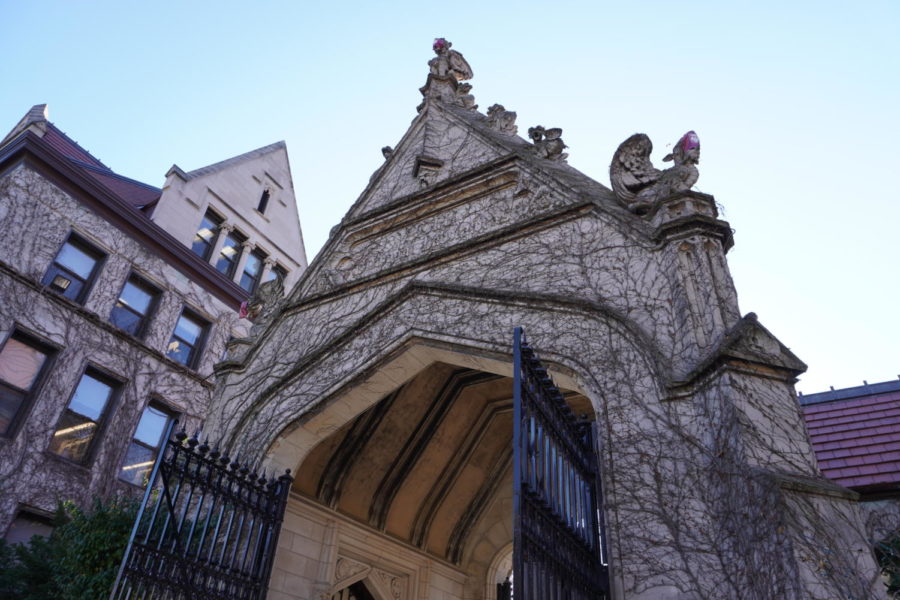

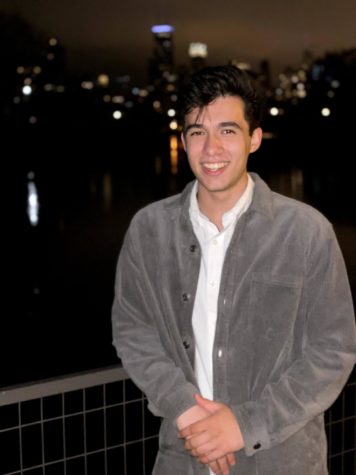

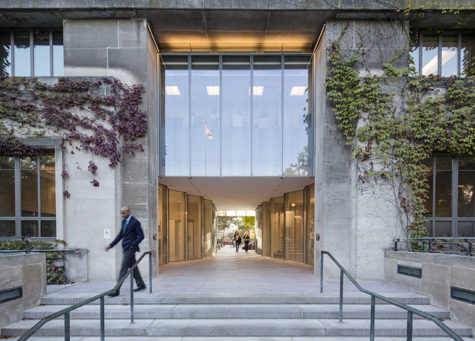
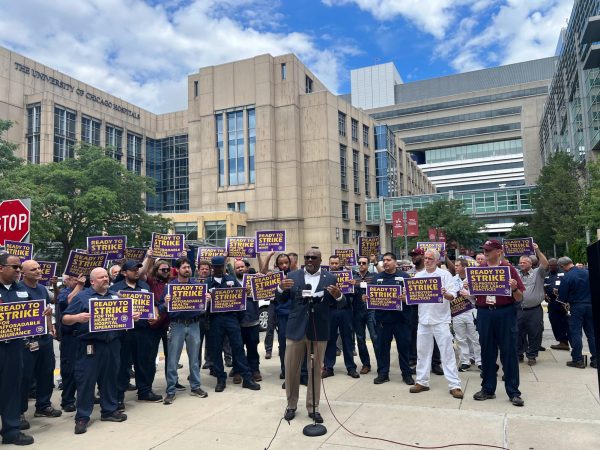

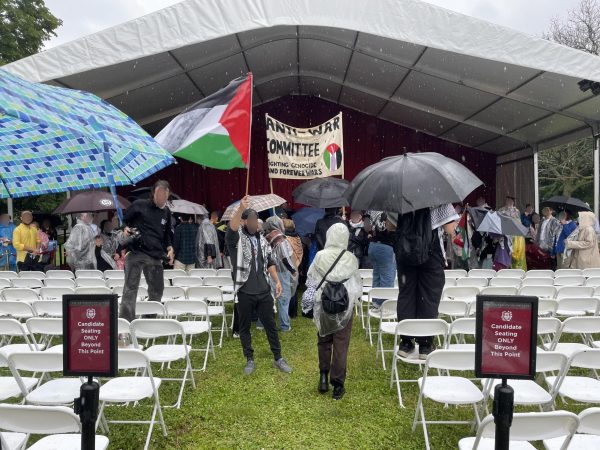
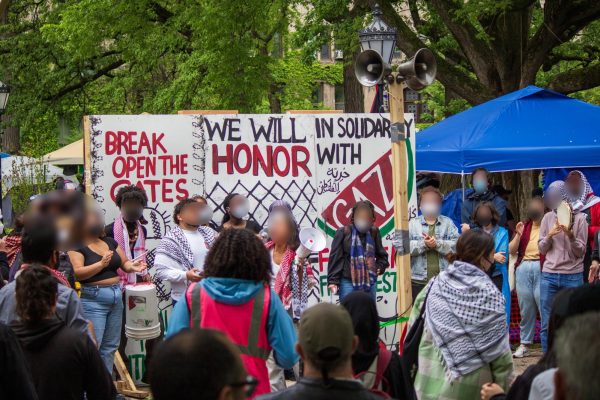
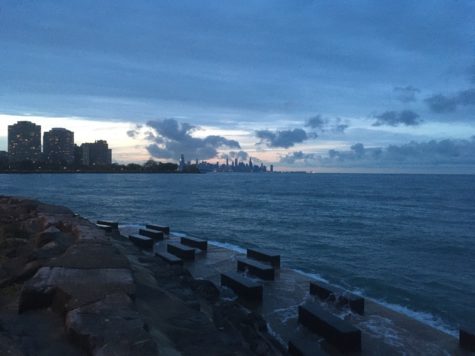
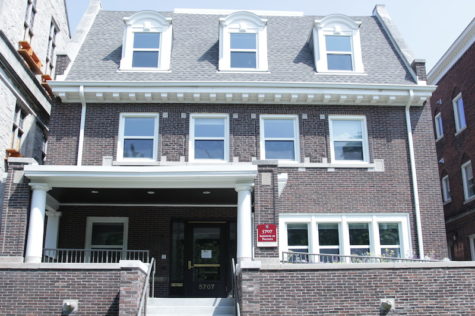
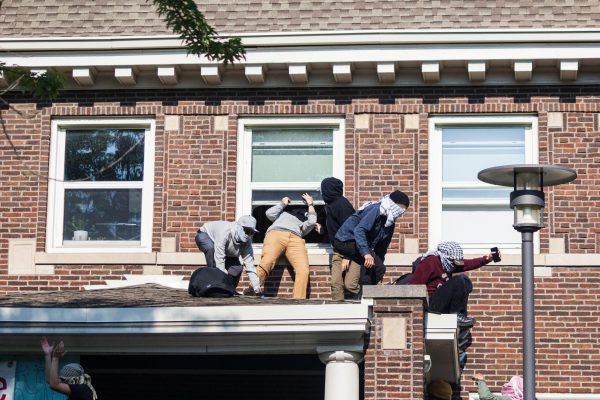
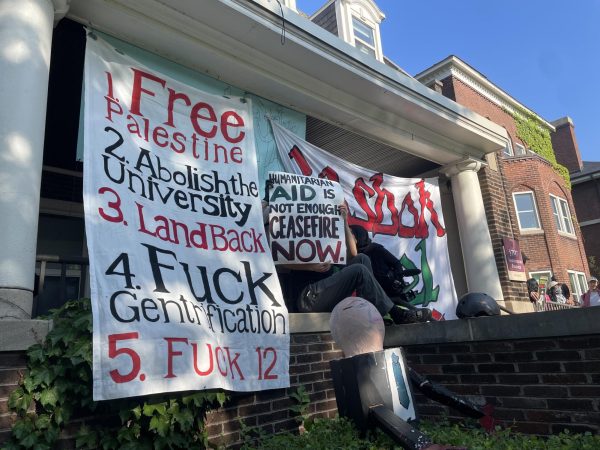
Peter Schaeffer / Jul 15, 2023 at 12:20 pm
Rebecca Journey’s bio shows that she is completely nuts (as in totally crazy). Quote
“Rebecca Journey is a cultural anthropologist who earned her PhD from the University of Chicago in 2021. Her work examines how the evolutionary and reformist logics of eugenic ideology animate the aesthetics of green urbanism in contemporary Denmark. She has special interests in the techno- and ethnopolitics of climate change; histories of Scandinavian design; and the semiotics of social difference.”
Jim Lewis / Nov 22, 2022 at 10:19 pm
I’m a U of C law school graduate with years of experience in social justice work on behalf of all people. I have a mild concern about the course title–“The Question of Whiteness” might have been more appropriate, since courses explore questions–but I have a somewhat stronger concern about the student’s behavior. He seems to have jumped from a course description to a conclusion that it’s about “anti-white hatred,” when that’s not in the course description. He should have had a sound basis for his jump, or not taken the jump. And he seems to have begun with a personal conclusion and applied that conclusion without due respect for teachers and students who wish to explore the social constructs of whiteness and non-whiteness, constructs that have been significant within our country’s past and present. Finally, he did enroll in a university, and should accept the fact that in a university some discussions will please him and some will displease him–and not try to use influence to shut down those that displease him. As I learned a long time ago, and as I hope this student will come to learn, the appropriate response to displeasing ideas and speech is competing ideas and speech that might turn out to be better–and the appropriate response is not to shoot the messenger and try to kill the message.
Fred Strasheim / Nov 11, 2022 at 1:45 pm
Simple question. Would UChicago offer a course called “The Problem of Blackness”? I doubt it, and if someone tried to offer such a course no one make a sophistic argument for it like ‘[t]hat is no more racist than studying how people support a sports team.” If that’s the case, then why would the university offer a course on the “Problem of Whiteness”?
What gives away the game and indicates that this is more than just an attempt to study race in society is the use of the word “problem” in the course title. Would that term ever be used in reference to another racial group?
I also think that the gratuitous reference to Daniel Schmidt’s having been terminated as a Maroon columnist was irrelevant to the subject of this piece and mean-spirited.
Bob Offer-Westort / Nov 16, 2022 at 2:28 pm
You would do well to Google the phrase “the problem of blackness” & to note the language of Dubois, Fanon, & Moten that comes up. You might also Google the phrase “how does it feel to be a problem” & note who’s writing about whom.
uchicago student / Nov 16, 2022 at 4:28 pm
That’s not the point. The point is that a student weaponized social media in an attempt to get a course cancelled. Professors should be allowed to teach what they want, within reason, without fear of intimidation or threats, and the fact that Schmidt felt entitled to direct threats of physical violence at an instructor he doesn’t like in order to silence a course he disagrees with is extremely concerning for the state of free speech.
Of course, the term “within reason” is important there, and I wouldn’t support a professor’s right to, for example, teach a class that denies the Holocaust. But the class in question here is in no way comparable to that. An examination of our understanding of whiteness, or the idea that our common understanding of the concept is wrong or can cause problems in society, is a valid and intellectually honest position to take, and the right to hold that opinion should be defended even if you or I disagree with it. Beyond that, there are classes here that are much more controversial and sensitive than this one, on topics that are actively censored and protested by both national governments and by activist groups. It’s clear that Schmidt targeted this course and this professor not because of its actual content, but simply because it had a semi-provocative name that he could capitalize on to promote his own agenda. I should note that, by his own admission, he intends to run for office.
It’s also perfectly relevant to mention Schmidt’s termination from the Maroon, particularly because of the circumstances of his termination. He was removed from the Maroon’s staff after repeatedly harassing one of his fellow writers on Instagram, posting her profile on his story multiple times, and tacitly encouraging his followers to repeatedly contact her. That he has a history of taking to social media to bully people into acquiescing when he doesn’t get his way is something worth mentioning, especially because an obvious defense he might trot out is that “I’m not responsible for the actions of my followers.” But given his history, he clearly knows what the results will be when he posts a Twitter thread attacking a professor accompanied with her name, photo, and contact information.
Jonathan Newby / Nov 17, 2022 at 12:30 pm
To answer your first point, I would very much think so, that a similarly-named course for another racial group would be used. There are many robust debates on the conception of race across groups – the inherent politicization and dehumanization of Black identity (afropessimism), debates surrounding the uses of Latino/Latina/Latinx/etc. in regards to gender, “Latinidad” and its associations with anti-Blackness and anti-Indigineity, Asian & Pacific Islander (API) and how PI groups are often deprioritized in favor of A, etc. You could – and there to exist – many rich courses and research materials on these debates and much more, related to the “problem” of various racial categories.
EKB / Nov 18, 2022 at 3:40 pm
In the world outside of the ivory tower saying “whiteness is a problem” is no different than saying “white people are a problem”. For the professor to claim otherwise is either naïve or disingenuous.
M / Dec 8, 2022 at 3:24 pm
would be a real shame if the world outside the ivory tower were forced to learn the difference between these two obviously different statements. perhaps they could use some sort of…teacher…to help them understand the difference.
Jim Lewis / Nov 24, 2022 at 10:16 pm
Maybe a gentler title could have been “The Question of Whiteness,” since courses examine questions (as well as problems). But let’s get real: the course description does not include “anti-white hate;” that’s the student’s apparently-unfounded assumption. And the student seems pleased to try to shut down a course that has been taught previously, that a teacher and department wish to present again, and that students apparently want to take. The university exists to challenge people, not to shut down challenges that might not please some students. Let’s respect the department, teacher and students, and let’s not close off lines of inquiry–and threaten teachers with death.